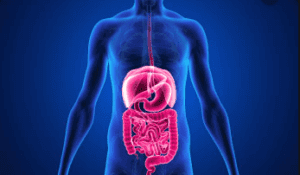The top two health goals in the United States are to “lose weight” and “eat healthier”. So if we’re all working on the same things, how come some of us get it right, but others are left struggling–sometimes for YEARS, only to see their health plateau?
What if losing weight isn’t as simple as just “eat less, move more”?
This is great advice, to be sure, but it doesn’t acknowledge any of the imbalanced systems in our body–or that everyone is an individual with their own unique physiology.
Weight loss doesn’t have a one-size-fits-all approach.
At the same time we’re trying to focus on weight loss, we’re often struggling with things like poor digestion, stress–both personal and professional, sleep troubles, and we have a body that’s trying to keep up with a significant daily toxic load.
What if our weight gain or inability to lose weight isn’t the cause of our problems, but a symptom of our combined lifestyle?
Let’s shift our view to take a look at what can hold you back from reaching your optimal weight.
Why you can’t lose belly fat
Imbalanced intestinal bacteria
The amount and specific types of living bacteria in our digestive system affect our entire body–and our ability to lose or gain weight (1). Bacteria in our gut help us to digest food, synthesize certain vitamins and minerals, and they can send signals to the nervous system within our digestive tract.
 One of these signals helps us to produce a hormone called leptin, which tells our brain we’re full. We now know that certain kinds of gut bacteria reduce our sensitivity to this hormone, possibly leading us to eat more if our brain isn’t receiving the signal that we’re no longer hungry (2).
One of these signals helps us to produce a hormone called leptin, which tells our brain we’re full. We now know that certain kinds of gut bacteria reduce our sensitivity to this hormone, possibly leading us to eat more if our brain isn’t receiving the signal that we’re no longer hungry (2).
If stubborn belly bloat is a common symptom you struggle with, you may be suffering from an increased presence of the wrong type of bacteria in your small intestine. Most of our intestinal flora reside in the large intestine, slightly less in the small intestine, and very few are found in our stomach due to its acidic environment.
For various reasons, this delicate balance of bacteria can be disrupted, and an undesirable number of bacteria can make their way to your small intestine. This could be due to several factors: an antibiotic or medication, poor or slow digestion, or even stress (3).
When bacteria in the small intestine digest and ferment starches and carbohydrates too quickly, they produce an increased amount of gas. Furthermore, there are even more organisms that feed off this gas to produce methane (4). What this means for us is an increase in belly size, sometimes painful gas, and a lot of discomfort.
If you suspect a gut bacteria imbalance, you’re not alone. So many of us struggle with a less than ideal microbiome, and it holds us back from not only achieving weight loss, but nutrient absorption as well. This is why the 21-Day Belly Fix book contains simple, actionable steps to balance gut health. If you’re trying to lose weight or get healthier, you must address the state of your intestinal bacteria.
Hormones
If you’re eating healthier, but still noticing a plateau in your weight loss efforts, a hormone imbalance could be the culprit. The theory of balancing calories eaten versus calories spent is literally true, but it doesn’t account for hormone dysfunction. Calories in vs. calories out is called thermogenesis, and it really is true in a physics lab. But real people are not inside physics labs, and we have complex systems communicating with one another that dictate how our body will use fat for fuel–or if it will AT ALL.
While consuming a Standard American Diet, we tend to eat a high amount of carbohydrates, which increase our blood sugar. In order to bring blood sugar down, our pancreas releases insulin to allow the circulating sugar in our blood to enter our cells to be used for energy. The little known fact about insulin is that it’s a fat storage hormone. If insulin is elevated in response to high blood sugar, your body will not use it’s fat for fuel.
With compounding conditions like insulin resistance, in which our cells aren’t responding to the message insulin sends, we can have high insulin far past the time following a meal–when it should be returning back to a low level. The result? Increased fat storage, especially around our middle (5).
The thyroid plays another major role in weight maintenance. Our thyroid is located in the front of our neck and sends signals to control heart rate, breathing, and basal metabolic rate, among other things. Basal metabolic rate is how much energy you expend at rest. If your thyroid isn’t releasing enough of this hormone, BMR decreases, leading to fatigue, weight gain, and several other side effects.
Thyroid dysfunction affects almost 20 million Americans, but 60 percent of those with a thyroid condition are unaware of it (6). Working with an integrative practitioner is the best way to address thyroid function, and get weight loss efforts back on track.
Why you’re not losing weight on 1,200 calories per day
Inaccurate food tracking
Many of us take to tracking our food via apps like MyFitnessPal, FitBit, or simply by keeping a food journal. What seems like a simple action to track calories and achieve weight loss can be deceptively complicated.
Up to 70% of us under-report our calorie intake–and not even on purpose (7). For example, we might record that we had an omelette with veggies for breakfast one morning, but if we forget to include that it was cooked in 1 tbsp of butter and contained a quarter cup of cheese, our calorie tracking for that meal is incredibly inaccurate. For many people, a minutely-detailed report of every meal of the day is overwhelming, can cause anxiety, and is prone to immense inaccuracies.
If trying to eat healthier overall, a food journal might be helpful, but if it’s portion size control and weight loss we’re after this may not be the answer.
If you’re determined to track progress in this way, be honest (and detailed) about what you’re eating. You also may have a practitioner, nutritionist, or trainer who needs to see the full picture if they’re going to help you as best they can.
Why you’re not losing weight while working out
The Stress and Sleep Cycle
Stress is not isolated to our brain. What we do to our brain, we do to our body–and vice versa.
Many of us have incredibly busy days, followed by nights wherein we struggle to get enough sleep. During sleep, our hormones normalize, our cells heal, and we recharge our brains. Sleep and stress and intimately connected because one affects the other.
 We often resort to an increase in workout intensity or frequency to try to combat a plateau in weight loss–but this can have the opposite effect we desire. The right workout for your body type is beneficial for cortisol levels, serving to lower them, and increase things like metabolism and fat burning capability. A workout that is too difficult, or occurs when you’re not rested can actually increase stress levels and hurt weight loss in the long-run (10).
We often resort to an increase in workout intensity or frequency to try to combat a plateau in weight loss–but this can have the opposite effect we desire. The right workout for your body type is beneficial for cortisol levels, serving to lower them, and increase things like metabolism and fat burning capability. A workout that is too difficult, or occurs when you’re not rested can actually increase stress levels and hurt weight loss in the long-run (10).
Acute stress, like experiencing a death in the family, or financial struggles–are normal. But it’s when stress becomes chronic that it can create difficulty for our body to come out of it’s “fight or flight” state and back into the “rest and digest” state. Humans don’t thrive under chronic stress, and during these times, our body hangs on to body fat due to perceiving some kind of threat (8).
Poor sleep can exacerbate stress response, and make us more likely to choose calorie-dense foods due to a change in the reward systems in our brain (9). During a night’s rest, leptin and ghrelin (our hunger and fullness hormones) also normalize–allowing our body to accurately tell us when we’re hungry and when we’re full.
If stress is high–promoting fat storage–and sleep is low, we’re more likely to make poor food choices and have trouble maintaining a healthy weight.
Detox
There are trendy detox methods for almost everything–beauty detox, rapid cleanses, colon detox–but the truth behind detoxification is that your body performs functions to rid itself of unwanted substances constantly.
However, because our daily toxic load is often quite high, our various detox systems can become compromised quickly. When this happens, our body may not be able to properly metabolize certain enzymes, hormones, and signaling molecules that regulate metabolism and the use of fat for fuel.
While there isn’t a quick fix, there are safe, effective ways you can support your body’s detox pathways to make sure you’re not hanging on to heavy metals, hormone disrupting compounds, or other toxic substances.
Detoxing won’t necessarily make you lose weight, but it IS one way you can ensure metabolic systems can function optimally so you can reach your goals.
Are you one of the millions recommitting to your health this year? What are your resolutions? We’d like to hear from you!
Resources
- https://www.ncbi.nlm.nih.gov/pubmed/26474235
- https://www.ncbi.nlm.nih.gov/pubmed/23892476
- https://www.ncbi.nlm.nih.gov/pmc/articles/PMC3099351/
- https://healthblog.uofmhealth.org/digestive-health/gaseous-culprit-could-be-causing-your-stomach-pain-and-constipation
- https://www.ncbi.nlm.nih.gov/pmc/articles/PMC4038351/
- https://www.niddk.nih.gov/health-information/endocrine-diseases/hypothyroidism
- https://www.ncbi.nlm.nih.gov/pubmed/19094249
- https://www.ncbi.nlm.nih.gov/pmc/articles/PMC3428710/
- https://www.nih.gov/news-events/nih-research-matters/molecular-ties-between-lack-sleep-weight-gain
- https://chriskresser.com/why-you-may-need-to-exercise-less/
